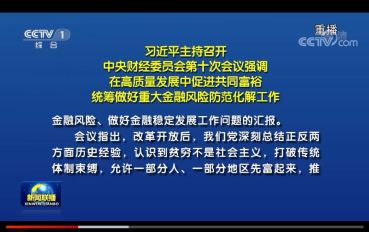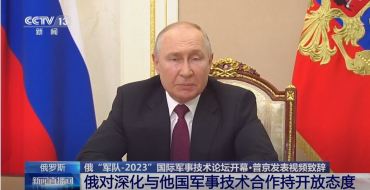
Wikimedia Commons – click picture for source
Jiang Zemin (江泽民), one of the CCP leadership’s many trained engineers, the man who invented the socialist market economy and the three represents, … Relatively untarnished by the June-4 crackdowns, he became the CCP’s chairman (or secretary general) in June 1989, by means of what official Chinese sources usually refer to as an “election”, at the Fourth Plenary Session of the Thirteenth CPC Central Committee. Jiang had spent some time abroad, as a trainee at the Stalin Automobile Works in Moscow in 1955, and later worked in leading technical and party functions in trades as different as the automotive and soap-manfucaturing industries. His work turned more administrative and governmental some time after 1980.
In October 1992, he told the 14th CCP party congress that
To establish a socialist market economy we must do the following important and interrelated tasks. First, we must change the way in which state-owned enterprises operate, especially the large and medium-sized ones, and push them into the market so as to increase their vitality and efficiency. This is the key to establishing a socialist market economy, consolidating the socialist system and demonstrating its superiority.
Based on Deng Xiaoping‘s concept of socialism with Chinese characteristics (中国特色社会主义), the socialist market economy (社会主义市场经济) focused on growth – something Deng kept emphasizing, sometimes against opposition from more conservative party leaders such as Chen Yun. Even Jiang is said to have come fully behind Deng’s all-out advocacy of growth once the paramount elder had made his inspection tour to the south (i. e. Shenzhen), garnering local support for his reform agenda, and proving that he was still China’s most powerful man, even if (mostly) from backstage.
Unlike his mentor Deng Xiaoping, he was no revolutionary veteran, and therefore lacked some or much of the traditional authority to head the party’s central military commission at the time. He led the commission anyway, and worked to make it clear that he was no mere civilian business promoter, according to a short news notice by German newsmagazine Der Spiegel in January 1995:
Those who criticize me for raising glasses with Western leaders must understand that this is tactics,
he told PLA officers in Chengdu, according to a central committee document the Spiegel said it had on hand.
I’m aware that the West remains our main enemy.
Socialism with Chinese characteristics has remained one of the CCP’s slogans, even as Jiang’s (and Deng’s) propensity to growth lost favor among the fourth generation of party leadership, i. e. the previous (Hu-Wen led) politbureau. The term socialist market economy has become less frequently used. In June 2011, China Daily hailed the concept as evidence for the wisdom of the CPC and its able leadership of the Chinese people in their endeavor to build a prosperous, civilized, democratic and harmonious modern socialist state and realize the great rejuvenation of the Chinese nation only in June 2011, but left no doubt that the Deng-Jiang approach had been second stage in a three-stage development strategy, and that
Now we are striding forward toward the strategic objective of the third stage. From now to the mid-21st century, China will be in a period of in-depth development of industrialization, informatization, urbanization, marketization and internationalization, an important period of strategic opportunities for economic and social development, but also a period with prominent social contradictions.
The three-staged approach referred to by the above China-Daily article of June 2011 had been spelled out by Jiang Zemin’s predecessor Zhao Ziyang (赵紫阳), in 1987. Jiang was to replace Zhao two years later, after Zhao had been ousted in the process of the June-4 crackdown. Li Peng (李鹏), state council chairman at the time of the crackdown, and the Standing Committee of the “National People’s Congress” afterwards, referred to the third stage as a the one where
we will catch up with medium-level developed countries in terms of per capita GNP by the middle of this century, achieve modernisation by and large and turn China into a prosperous, strong, democratic and culturally advanced socialist country,
in January 2001, speaking to an audience in India.
The Hong Kong handover in 1997 added to the glorious picture of growth, this time in terms of political power. But appointing the former British colony’s tycoon Tung Chee-hwa (董建華) as the chief executive of the newly-created special administrative region (or having him “elected”) was probably one of Jiang’s leadership’s less lucky choices. In October 2000, enraged by Hong Kong journalists’ questions about if the CCP supported Tung’s candidacy for a second term, and if so, how that support could play a role, if Tung was really to be elected, Jiang told the questioners that they were “too simple, sometimes nayifu”. Tung, deeply embarrassed (by his fellow Hong Kongers, his boss, or both sides), was laughing in the background.
In his angry lecture, Jiang also advised the Hong Kong press people to learn from Mike Wallace, an American anchorman who had interviewed him about a month earlier, in the seaside resort of Beidaihe. It had been an unusual interview, by CCP leadership standards, one that Jiang had visibly enjoyed, and one that had probably gone very well for him, in terms of public relations. Compared to his successor, he came across as a cosmopolitan, with a certain command of several foreign languages, including English, Russian, and arguably some German. When Spiegel journalists met with Jiang in 2002, they were greeted in German, with no accent.
Jiang had stated the need to deepen the reform of the system of distribution and the system of social security, in his 14th CCP party congress speech of October 1992, but that was basically that. If in essence, the objective of socialism was to liberate and develop the productive forces, to eliminate exploitation and polarization, and ultimately to achieve common prosperity, liberating the productive forces certainly came first. Growing divides between rich and poor didn’t appear to trouble either Jiang, or Zhu Rongji‘s (朱镕基) state council.
Another trend however did – the growing influence of a qigong-related, or buddhism-related religious organization, Falun Gong. In reaction to an incident in Tianjin, a massive silent protest involving over 10,000 Falun Gong practitioners or supporters was organised in Beijing on April 25, 1999. The CCP leadership declared Falun Gong an “evil cult” in July, 1999, and started a lasting crackdown, initially supplemented with extended evening news propaganda featuring allegations against the organization which were hardly more “scientific” than the “evil cult” itself. Here, too, Hong Kong’s unfortunate chief executive Tung Chee-hwa was walking on eggshells, trying to please both his superiors in Beijing, and the public in Hong Kong.
When Jiang stepped down as the CCP’s secretary general in November 2002, he had held the post for more than thirteen years. He relinquished state chairmanship in March 2003, and the party’s central military commission chairmanship in September 2004.
Jiang Zemin was born in Yangzhou, Jiangsu Province, in 1926. He is survived by his wife Wang Yeping (王冶坪, also born in Yangzhou), and by two sons, Jiang Mianheng (江绵恒) and Jiang Miankang (江绵康).
____________
Related
» Jiang Zemin’s Health Matters, July 8, 2011
» Tiger on the Brink, New York Times, about 1998
____________
Most headlines in during Jiang’s life after retirement came from Falun-Gong affiliated media. The close interest from these quarters was no coincidence.







[…] temporary, too, just as they are at Argentine Radio and TV, and disputes over journalistic content don’t appear to…